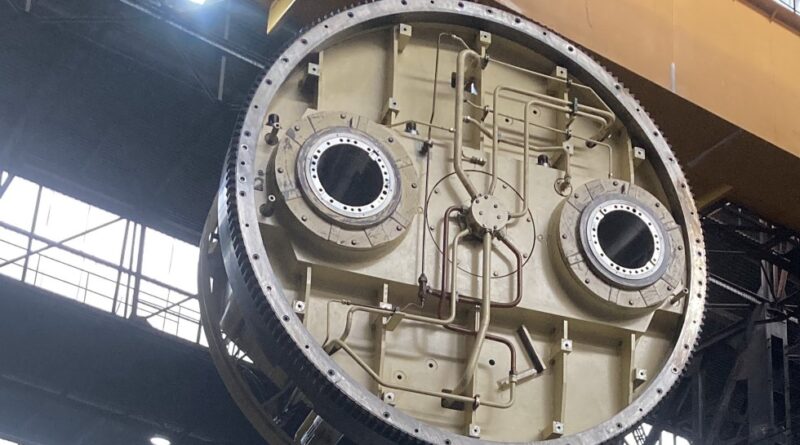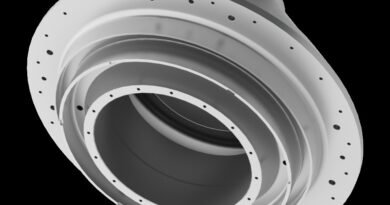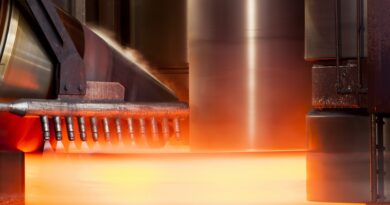Automation system in the cold rolling mill for grain-oriented silicon steel
Automation system in the cold rolling mill for grain-oriented silicon steel thyssenkrupp Electrical Steel (tkES) has awarded SMS group the contract to upgrade the automation system at its cold rolling mill, boasting a four-high CVC® design, located in Gelsenkirchen, Germany.
Originally built by SMS in 1974, this reversing mill specializes in the reduction of strips made from grain-oriented silicon steel (GO Si-Steel). The current modernization initiative aims to advance automation, enhance safety, and integrate highly innovative technological advancements to ensure maximum plant availability. Numerous modern technological features will be available post-upgrade to exploit the plant’s full potential. Scheduled for completion in two phases in 2027, the project emphasizes tkES’s dedication to maintaining high safety and operational efficiency standards.
The project involves upgrading the existing X-Pact® electrical and automation equipment, originally supplied by SMS. The new system will leverage SMS’s state-of-the-art automation technology, featuring the X-Pact® Embedded controller and a high-speed EtherCAT I/O system. Additionally, ergonomic control pulpits will replace the existing installations, and the IT infrastructure will be virtualized, thus ensuring high plant availability, safeguarding its lifecycle, and providing independence from hardware and operating systems.
The new automation solution from SMS includes level 1 and model-based level 2 automation systems specific to GO Si-Steel production, along with the X-Pact® Vision HMI, which offers forward-looking interactions to assure effective operator guidance. This system provides comprehensive tools for system maintenance, diagnostics, and troubleshooting. The master controller coordinates the rolling process and facilitates the exchange of information between various automation systems, including the level 2 system, the safety system, and the level 1 automation functions.
The project is founded on extensive on-site investigations that resulted in the joint development of a plant safety concept and the subsequent implementation of agreed measures. It aims to increase occupational safety not only during ongoing operations but also during maintenance work.




